Djibouti, located in the Horn of Africa, is a vibrant country with a rich and diverse
culture influenced by its ethnic diversity, colonial past, and local traditions. This
cultural richness is reflected in many aspects of daily life, such as clothing, food, arts
and crafts, music and dance, the growing film industry, and the economy. Here's an overview
of these elements:
 Traditional Clothing and Attire:
Djibouti’s traditional clothing reflects its ethnic diversity and cultural heritage. Men
typically wear the "macawiis," a lightweight sarong-like garment, often paired with a long shirt
or tunic. Women commonly wear the "dirac," a long, flowing dress made from light, colorful
fabrics, often adorned with intricate embroidery or beadwork. During special occasions, women
may also wear "gorgoro," a headscarf, and intricate jewelry made of silver or beads. Urban areas
see a fusion of traditional and modern clothing styles, with younger generations often adopting
Western attire while maintaining traditional garments for festivals and cultural events.
Traditional Clothing and Attire:
Djibouti’s traditional clothing reflects its ethnic diversity and cultural heritage. Men
typically wear the "macawiis," a lightweight sarong-like garment, often paired with a long shirt
or tunic. Women commonly wear the "dirac," a long, flowing dress made from light, colorful
fabrics, often adorned with intricate embroidery or beadwork. During special occasions, women
may also wear "gorgoro," a headscarf, and intricate jewelry made of silver or beads. Urban areas
see a fusion of traditional and modern clothing styles, with younger generations often adopting
Western attire while maintaining traditional garments for festivals and cultural events.
 Language and Literature:
Djibouti is a multilingual nation, with French and Arabic serving as the official languages.
Somali and Afar are widely spoken and serve as the primary languages of communication among
local communities. The literature of Djibouti is deeply rooted in oral traditions, with poetry
and storytelling being significant cultural expressions. Poems are often recited at social
gatherings, ceremonies, and community events, reflecting social values, history, and the daily
experiences of the Djiboutian people. Modern literary movements are emerging, with writers
producing works in various languages that explore themes like identity, migration, and the
country's colonial past.
Language and Literature:
Djibouti is a multilingual nation, with French and Arabic serving as the official languages.
Somali and Afar are widely spoken and serve as the primary languages of communication among
local communities. The literature of Djibouti is deeply rooted in oral traditions, with poetry
and storytelling being significant cultural expressions. Poems are often recited at social
gatherings, ceremonies, and community events, reflecting social values, history, and the daily
experiences of the Djiboutian people. Modern literary movements are emerging, with writers
producing works in various languages that explore themes like identity, migration, and the
country's colonial past.
 Music and Dance:
Music and dance are essential components of Djibouti's cultural expression. Traditional music
incorporates rhythmic drumming, string instruments like the "oud," and the "tanbur," accompanied
by chanting or singing. Popular genres include "balwo" and "salaam," which tell stories of love,
hardship, and social issues. Dance is often performed at weddings, religious ceremonies, and
national celebrations, with dances like the "dhaanto" showcasing communal spirit and harmony.
Contemporary influences, such as hip-hop and electronic music, are also growing in popularity,
especially among the youth.
Music and Dance:
Music and dance are essential components of Djibouti's cultural expression. Traditional music
incorporates rhythmic drumming, string instruments like the "oud," and the "tanbur," accompanied
by chanting or singing. Popular genres include "balwo" and "salaam," which tell stories of love,
hardship, and social issues. Dance is often performed at weddings, religious ceremonies, and
national celebrations, with dances like the "dhaanto" showcasing communal spirit and harmony.
Contemporary influences, such as hip-hop and electronic music, are also growing in popularity,
especially among the youth.
 Ceremonies and Festivals:
Ceremonies and festivals in Djibouti are vibrant and reflect the country's rich cultural
heritage. Major Islamic festivals like Eid al-Fitr and Eid al-Adha are widely celebrated with
communal prayers, feasting, and social gatherings. Traditional ceremonies, such as weddings, are
marked by music, dance, and elaborate feasts that can last for several days. The “Fete de
l'Indépendance” (Independence Day) on June 27th is celebrated with parades, cultural
performances, and public speeches to commemorate Djibouti’s independence from France in 1977.
Ceremonies and Festivals:
Ceremonies and festivals in Djibouti are vibrant and reflect the country's rich cultural
heritage. Major Islamic festivals like Eid al-Fitr and Eid al-Adha are widely celebrated with
communal prayers, feasting, and social gatherings. Traditional ceremonies, such as weddings, are
marked by music, dance, and elaborate feasts that can last for several days. The “Fete de
l'Indépendance” (Independence Day) on June 27th is celebrated with parades, cultural
performances, and public speeches to commemorate Djibouti’s independence from France in 1977.
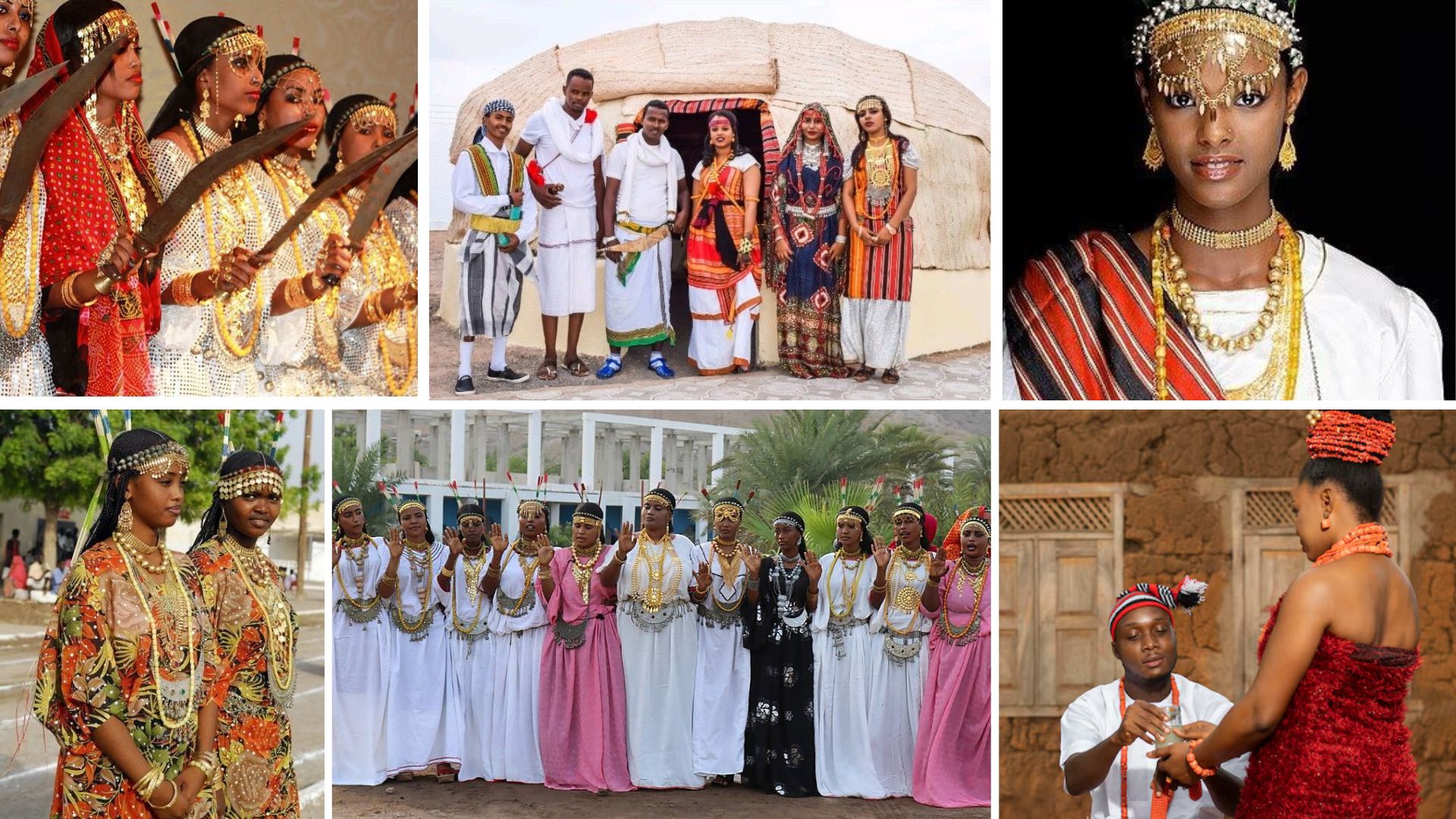
Djibouti Clothing
Djibouti's clothing is an amalgamation of cultural influences from its African, Arab, and French heritage. Traditional attire remains popular, particularly in rural areas, while urban areas see a mix of traditional and Western fashion. On special occasions, Djiboutians take pride in wearing traditional garments adorned with embroidery and beadwork, reflecting their cultural identity and heritage.
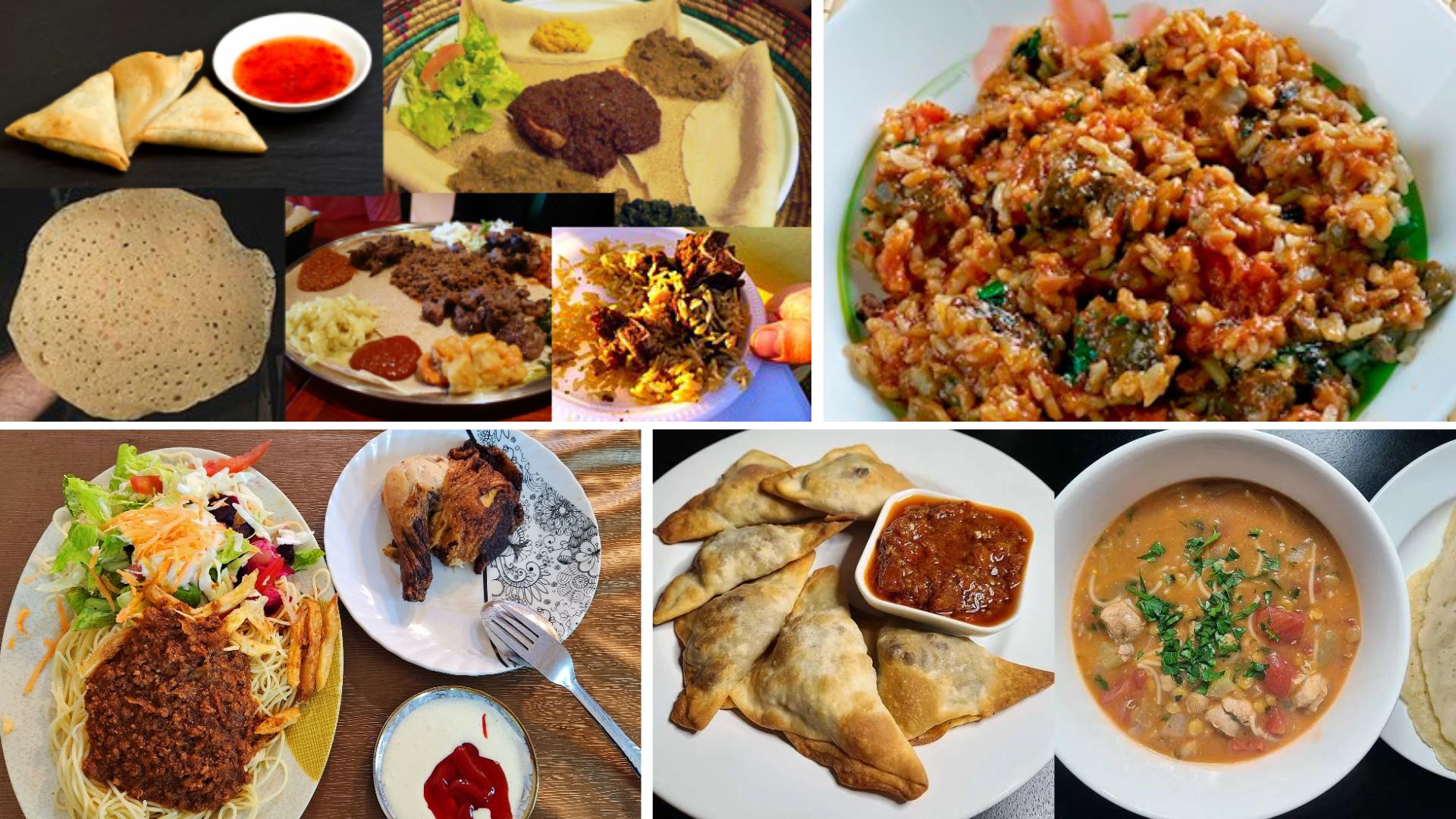
Djibouti Food
Djiboutian cuisine is a delightful blend of African, Arab, and French influences. The staple foods include rice, lentils, flatbreads like "lahoh," and fermented bread called "injera." Popular dishes include "fah-fah," a spicy stew made from lamb or goat, and "sambuusa," a savory pastry filled with meat or vegetables. Seafood is abundant and often featured in local dishes due to Djibouti's coastal location. Meals are typically accompanied by tea or coffee, spiced with cardamom, ginger, or cinnamon, served in small cups.
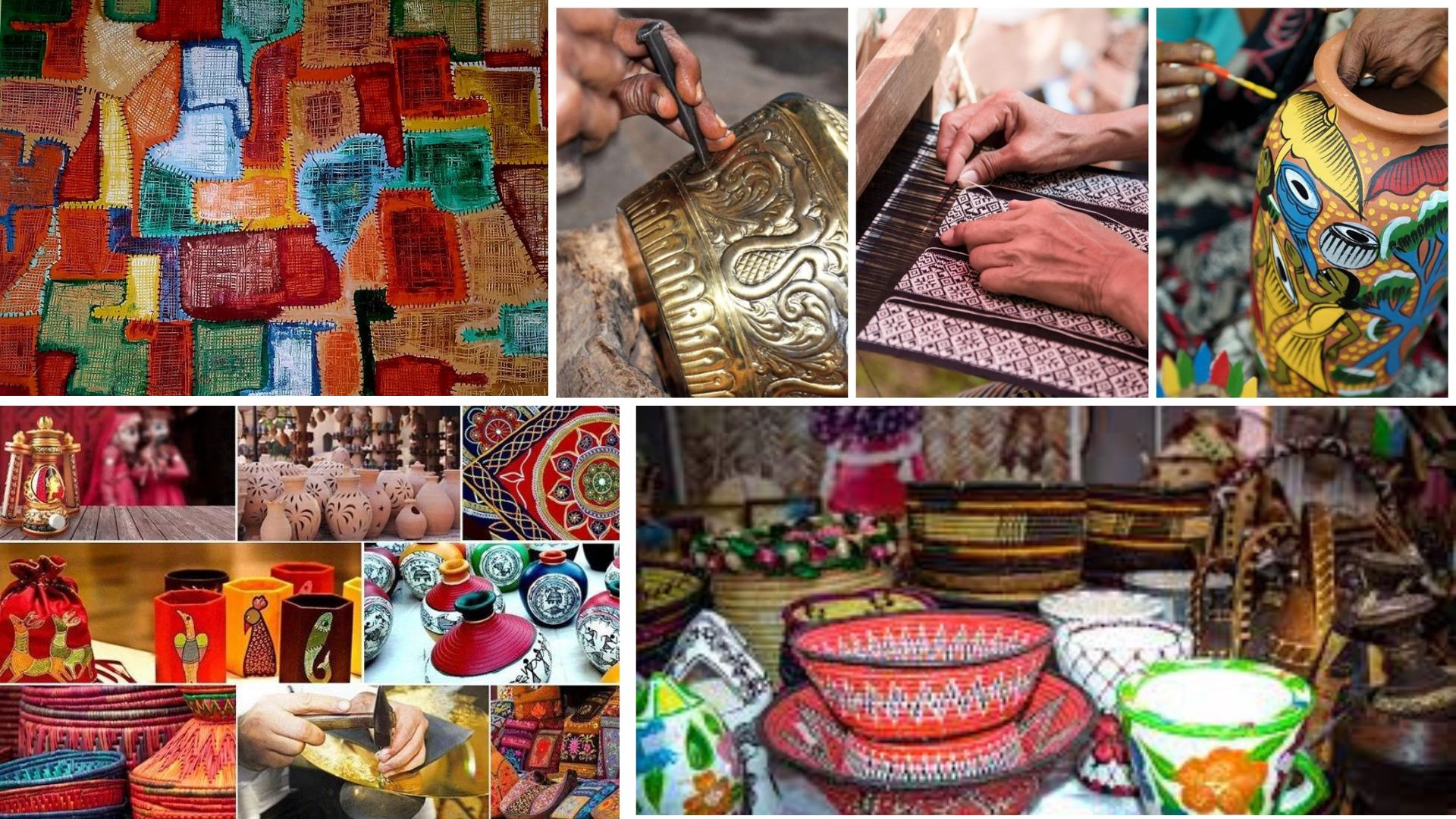
Djibouti Arts and Crafts
Arts and crafts in Djibouti are characterized by traditional weaving, pottery, and basket-making. These crafts are often made from natural materials such as palm leaves and reeds. Djiboutian jewelry, crafted from silver, beads, and semi-precious stones, is worn during special occasions and ceremonies. Modern visual arts, including painting and sculpture, are gradually gaining popularity, with local artists exploring contemporary themes alongside traditional motifs.
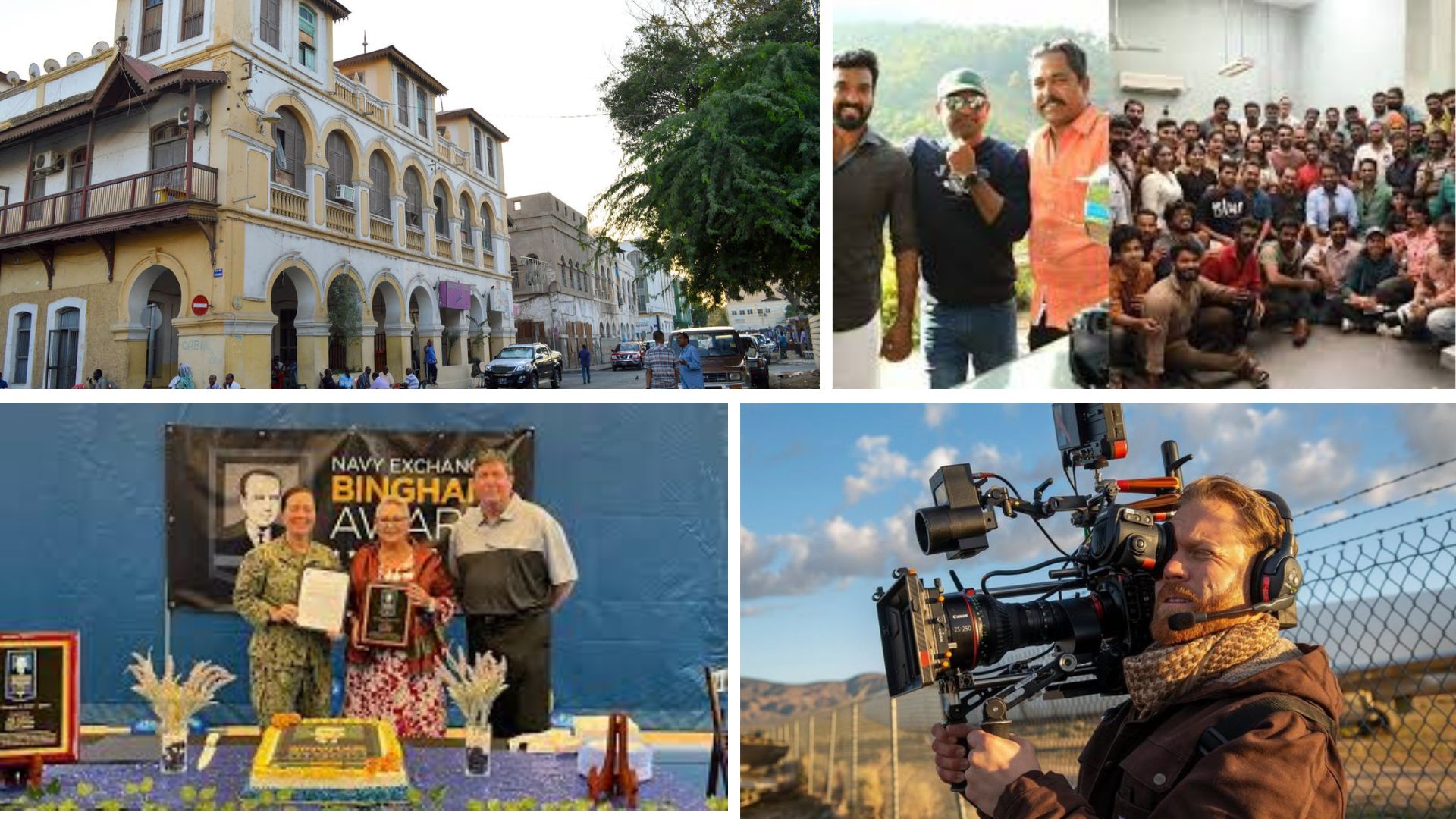
Djibouti Film Industry
Djibouti’s film industry is in its early stages but is gradually developing. Local filmmakers are starting to explore themes related to Djiboutian culture, history, and social issues, despite facing challenges such as limited funding and resources. Initiatives like film festivals and workshops are being organized to promote local talent and create a platform for showcasing Djiboutian stories to a broader audience.
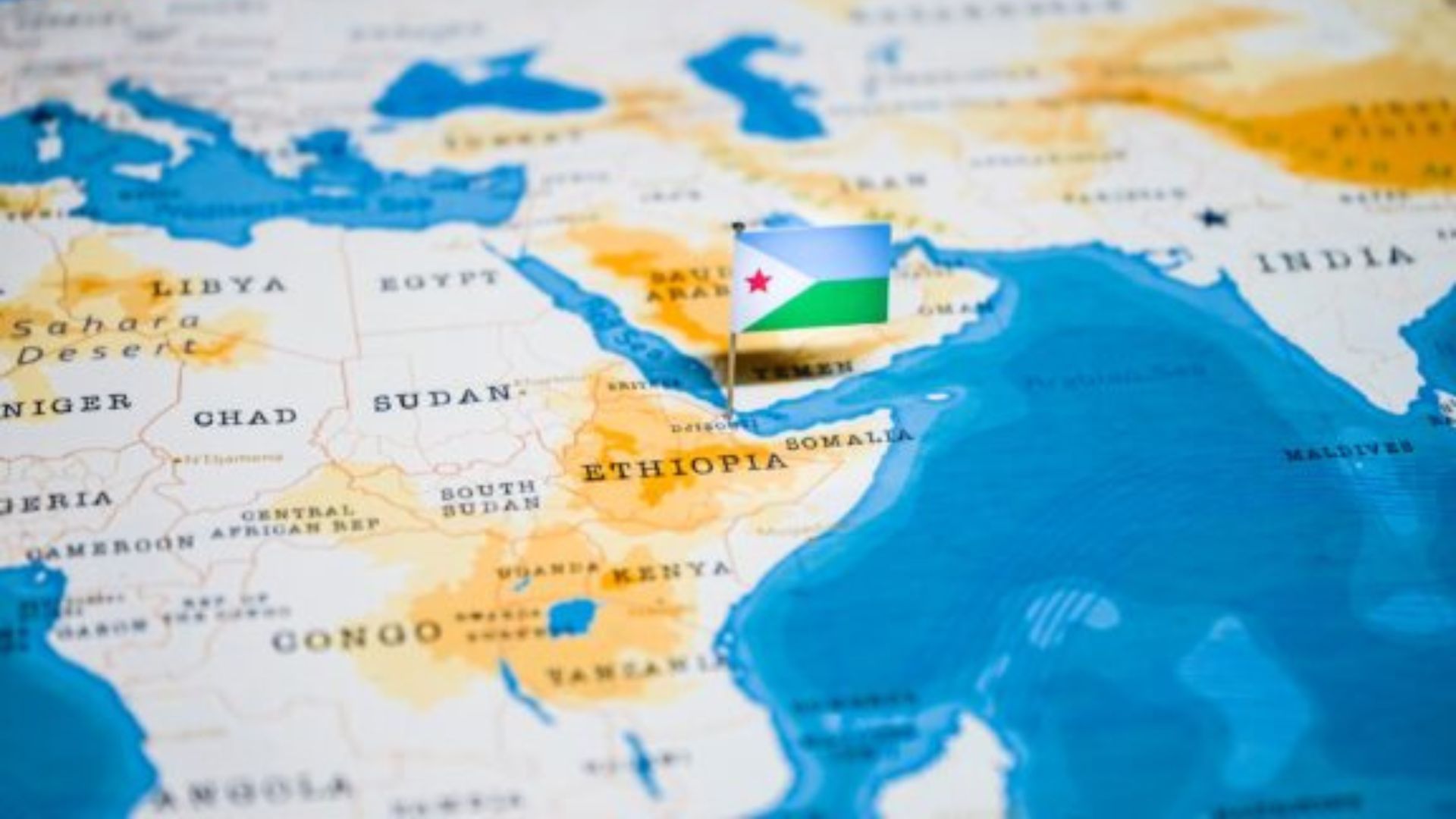
Djibouti Economy
Djibouti’s economy is primarily service-based, with a significant focus on port services, trade, and logistics due to its strategic location along major shipping routes. The Port of Djibouti is one of the most crucial in the region, serving as a transit point for international trade, particularly for landlocked Ethiopia. The government is also looking to diversify the economy by promoting tourism, particularly cultural and eco-tourism, leveraging its natural attractions like Lake Assal, the Gulf of Tadjoura, and its unique desert landscapes.